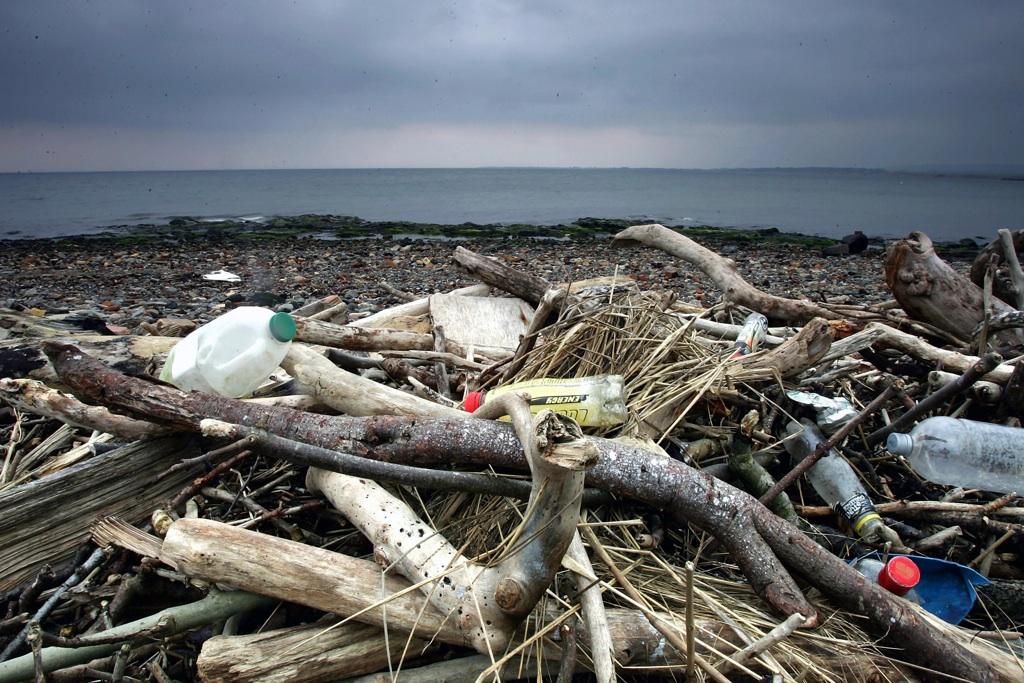Los Angeles becomes biggest US city to ban plastic bags
Tires, plastic bottles and other garbage washed up by the sea litters the beaches in Prestwick, Scotland, on 22 Mar. 2005.
Los Angeles has become the biggest US city to ban plastic bags after the city council voted 13-1 to banish them from supermarkets and thousands of smaller stores, the Los Angeles Times reported.
The ban came almost simultaneously with Hawaii's move to become the first state in the nation to have a state-wide ban on plastic bags.
More from GlobalPost: Hawaii becomes first state to ban plastic bags
However, while it is by far the biggest, LA is only the 48th city in California to ban plastic bags, the Seattle Post noted.
San Francisco was the first major US city to ban plastic bags in 2007, and similar laws have since been enacted in dozens of smaller cities, including San Jose and Long Beach, along with the US capital, Washington, according to DPA.
The LA phaseout will begin following completion of a four-month environmental review. Larger stores would then have six months to get rid of the plastic bags, while smaller stores will be allowed 12 months to phase them out.
Under the new law, shops will be able to offer customers paper bags for 10 US cents each.
According to the Times, the council backed away from a more controversial plan to also ban paper grocery bags.
The LA plastic bag ban has been long-sought by clean-water advocates — including former Seinfeld actress Julia Louis-Dreyfus — who say the bags pollute the ocean and the city's waterways.
The Times quoted H. David Nahai, a former top executive at the Department of Water and Power, as saying: "Plastic harms our environment. It is a threat to the coastal economy. It is a danger to marine life, and it is an unconscionable burden to taxpayers who have to foot the bill for cleanups year after year."
Grocery stores and other vendors in Hawaii must comply with that ban by July 15, 2015.
More from GlobalPost: Plastic garbage in the ocean: There’s more of it than previously estimated, report says
Our coverage reaches millions each week, but only a small fraction of listeners contribute to sustain our program. We still need 224 more people to donate $100 or $10/monthly to unlock our $67,000 match. Will you help us get there today?
